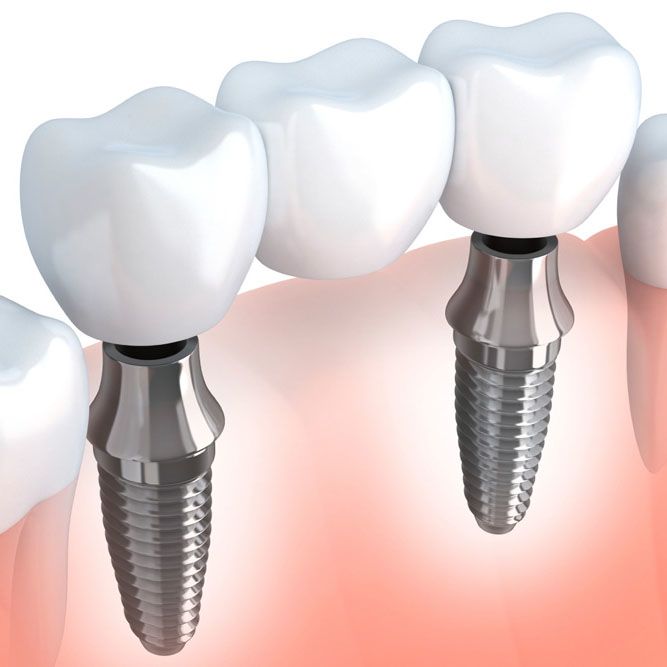Dental Bridges vs. Implants: Which Option is Better?
 When considering your options for tooth replacement, learning more about the advantages and disadvantages of dental bridges vs. implants is an important step toward determining which treatment is right for you. Although dental implants are considered the ultimate solution for replacing lost teeth, both dental bridges and an implant-supported restoration can dramatically improve the appearance and function of your smile. During your initial consultation at our Boston, MA, practice, Dr. James Stein will thoroughly discuss the pros and cons of each procedure and help determine which solution is better-suited for your needs, based on your goals and medical history. Knowing the benefits and costs involved can help you make the best decision for your unique situation.
When considering your options for tooth replacement, learning more about the advantages and disadvantages of dental bridges vs. implants is an important step toward determining which treatment is right for you. Although dental implants are considered the ultimate solution for replacing lost teeth, both dental bridges and an implant-supported restoration can dramatically improve the appearance and function of your smile. During your initial consultation at our Boston, MA, practice, Dr. James Stein will thoroughly discuss the pros and cons of each procedure and help determine which solution is better-suited for your needs, based on your goals and medical history. Knowing the benefits and costs involved can help you make the best decision for your unique situation.
What is a Dental Bridge?
A traditional dental bridge is a custom-made oral prosthetic appliance that is permanently affixed to the surrounding teeth on either side of the gap left behind by one to three consecutive missing teeth. Made from durable and natural-looking materials, this restorative device consists of two dental crowns fused with at least one false tooth in between to help bridge the gap between your natural teeth. Although dental bridges are affordable and can provide immediate aesthetically pleasing results, remaining teeth are at risk for developing tooth decay and gum disease. To qualify for a dental bridge, patients must have healthy and sturdy surrounding teeth that are stable enough to support the appliance. At our dental practice, Dr. Stein uses advanced technology to deliver results in as little as two office visits.
Although dental implants are considered the ultimate solution for replacing missing teeth, both dental bridges and an implant-supported restoration can dramatically improve the appearance and function of your smile.
Pros and Cons of a Dental Bridge
Pros
- Minimally invasive procedure
- Immediate results
- Cost-effective
Cons
- Not as aesthetically pleasing as dental implants
- Can damage remaining teeth and lead to other costly restorative treatments
- May need to be replaced every five to seven years

What are Dental Implants?
Dental implants are small titanium posts that are surgically inserted into your jawbone and are designed to support a restoration. The type of restoration required will depend on the number of missing teeth and how many implant posts are placed. Because of the advancements made in the implant dentistry, a full arch denture can be supported with just four to six implant posts. Once the posts are inserted, your jaw will undergo a process known as osseointegration. During this four to six month healing period, the posts will permanently bond with your jawbone tissue, providing a solid foundation for your restoration.
Dental implants are the only restorative solution created to replace a missing tooth from root to crown. Because of this, dental implants provide superior, permanent results. When properly cared for, an implant-supported restoration can last you for many years. However, patients with severe gum disease or bone loss may not qualify for this procedure.
Pros and Cons of Dental Implants
Pros
- Permanent results with little maintenance
- Protects your overall oral health, improving jawbone strength without straining remaining teeth
- Feels and functions just like natural teeth
Cons
- Requires surgery and an extensive healing period
- More expensive than traditional treatments
Contact Us Today
If you are facing tooth loss, but unsure whether a dental bridge or an implant-supported restoration is better suited for you, contact our office online or by calling (617) 227-6076 to schedule your consultation with Dr. Stein. He will meet with you to discuss all the available options, taking the time to answer any questions or concerns you may have.







